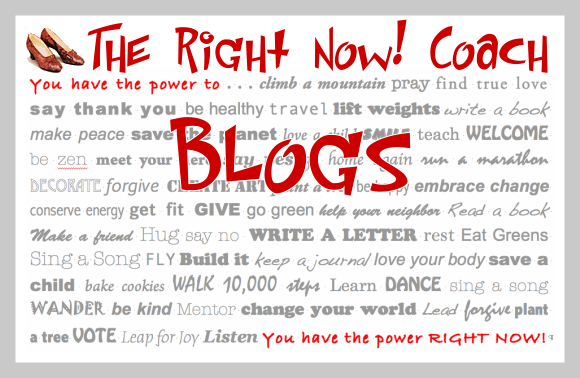I have big news for you all: this journaling stuff really works.
Yeah, I know I've only been journaling for nine days. Still, I've experienced some shifts in my life. When I started this adventure, I was down with a stomach virus. On Monday, after five days of gratitude journaling, I woke up with the sniffles and the all-too-familiar twinge of anxiety in my stomach. Yikes.
Since then, I've been practicing the write2delight exercises. Each day, I've used multi-colored pens to record the activities, people, and places that delight me! After I make my list, I write about how I might do more of the stuff I love each day.
After four days of write2delight, I feel better physically and emotionally. My sniffles have disappeared. I still have a to-do list that would crush an Olympic weightlifter, but I don't feel as daunted by it. And a few of the things on my list have showed up in my life. (Yeah, I know this sounds kind of woo-woo. So be it.) I was asked to write an article about the Dream Keepers, my writing group for tweens and teens. I received an invitation take a class on teaching writing and art—on fellowship! A work assignment gave me the opportunity to write about another topic that interests me. Wow!
In the book Think and Grow Rich, Napoleon Hill said, "Reduce your plan to writing. The moment you complete this, you will have definitely given concrete form to the intangible desire." Every time I have put one of my project ideas into writing, opportunities have shown up like metals to magnet. I cannot explain it. I can't prove it. But it works. The write2delight assignment reminded me of this. For that reason, I'll probably keep writing about my delicious plans, even as I take on the next writing intervention.
Research by psychologist James Pennebaker has shown that people who used writing to make sense of their traumatic life experiences had the long-lasting effect of feeling happier and less anxious. Here's what happened. Pennebaker asked his subjects to write for fifteen
minutes a day on four consecutive days. Half of the group members wrote about a difficult or traumatic event in their lives. The other half of the group, the control group, was asked to write about their day or to
describe their living environment. A year later, he examined the subject's medical records. The people who wrote about their difficult experiences were healthier than the others. What made the difference? According to Pennebaker, it was the meaning-making that mattered. The people who showed increased insight into their difficult situation during the four days stayed healthier than those who simply wrote about their feelings or the color of their carpet.
In a study conducted with asthma patients at the State University of New York, Stony Brook, School of Medicine, study participants wrote about their most stressful experiences. The control group wrote about their daily activities. According to the book Asthma Free in 21 Days, 47 percent of the patients who wrote about their challenging life experiences showed improvement in lung function that could not be attributed to medication or other factors. 24 percent of the control group showed improvement as well. (See Shafer and Greenfield, Asthma Free in 21 Days, p. 139) Notice this: both groups improved their lung function through writing.
Okay, so here's the challenge. For the next four days, write for twenty minutes each day about a difficult event in your life. In your writing, try to make meaning out of the experience. Ask yourself:
- What personal strengths did I use to cope with and overcome this challenge?
- What did I learn about myself?
- Who helped me and supported me in the midst of this experience?
- What random acts of kindness did I experience during this time?
- What good things have come out of this experience?
- What parts of my experience have helped me support or understand others?
- In what ways has this experience enriched my life?
- In what ways has this event deepened my understanding of life and other people?
One warning before you begin: Pennebaker found that participants felt worse IMMEDIATELY after writing about a difficult past event. But, these feelings did dissipate and, in the long term, the participants who did the therapeutic writing were healthier, better able to function in daily life, and has a better sense of personal well-being. My advice: plan to engage in one of your delicious daily delights after you've finished the daily journaling. Take a walk, call a friend, listen to music—anything that brightens your day.
And, as always, if you have journaling ideas to share or exciting improvements to report, the comment box is always open!
And, as always, if you have journaling ideas to share or exciting improvements to report, the comment box is always open!










